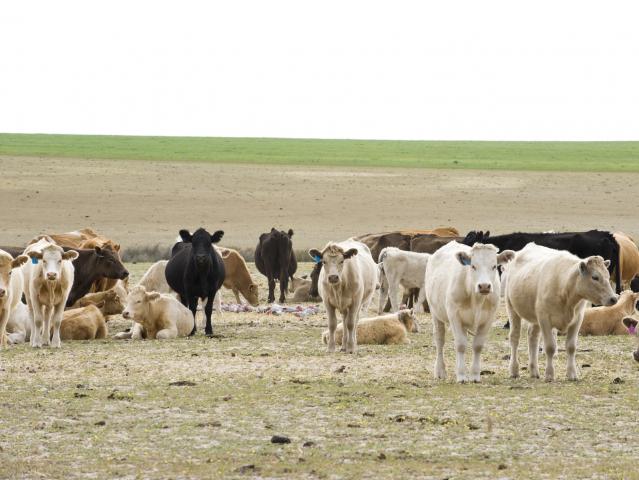Ingrown horn prosecutions a reminder to inspect livestock thoroughly
A number of animal welfare prosecutions throughout 2018 have highlighted the need for producers to closely and regularly inspect their livestock, and appropriately treat any issues that are observed.
In September, a landholder was fined $2200 in the Albany Courthouse after the offender pleaded guilty to one charge of cruelty under the Animal Welfare Act 2002 (the Act). The conviction related to events in October 2016, when the offender sent a consignment of eight cows to an abattoir. One animal from this consignment had an ingrown left horn.
At post mortem it was found that the ingrown horn had caused an injury to the cow which was 4cm wide and 3cm deep. The cow’s left eye was swollen and could not be opened, and it is estimated that the horn had been ingrown for a long period of time.
In another case, a landholder was fined $20,000 in the Busselton Courthouse in July after entering a plea of guilty to two charges of cruelty under the Act, relating to two steers with ingrown horns.
The first animal, sent to an abattoir in October 2016, had an ingrown horn which had penetrated to a depth of almost three centimetres and led to an infected, chronic wound on its cheek. The second animal, sent to an abattoir in November 2016, had an ingrown horn which had penetrated to a depth of two centimetres at its deepest point. Tissue surrounding the wound was significantly swollen. Both injuries were assessed as being of some duration in time, likely weeks.
In other cases involving both sheep and cattle, animals with ingrown horns were identified at saleyards by inspectors from the department’s Livestock Compliance Unit who were undertaking routine inspections. In one of these incidents a court order was also imposed, prohibiting the landholder from being a person in charge of livestock until 2021 unless certain conditions were complied with.
Department principal compliance inspector Charlotte McIntyre said the convictions were a reminder to anyone keeping animals that they are required to continually and closely monitor them to identify any potential animal welfare issues.
“These incidents highlight not only a lack of general understanding of what constitutes being ‘fit to load’, but also a lack of attention when it comes to thoroughly inspecting animals before they are loaded,” Charlotte said.
“The Model Code of Practice for the Welfare of Animals: Cattle clearly states that any inward growing horns likely to penetrate or contact facial features should be trimmed appropriately.
“This is a straightforward procedure but if there is any doubt, a veterinarian should be consulted for advice.
“In addition, all animals to be transported should be inspected to ensure they are fit to travel. Transporting unwell or injured animals is likely to cause additional, unnecessary harm. If there is any doubt, the animals shouldn’t be loaded.”
To report suspected cruelty to animals, contact the RSPCA on +61 (0)8 9209 9300 or 1300 278 3589 (emergencies only).

